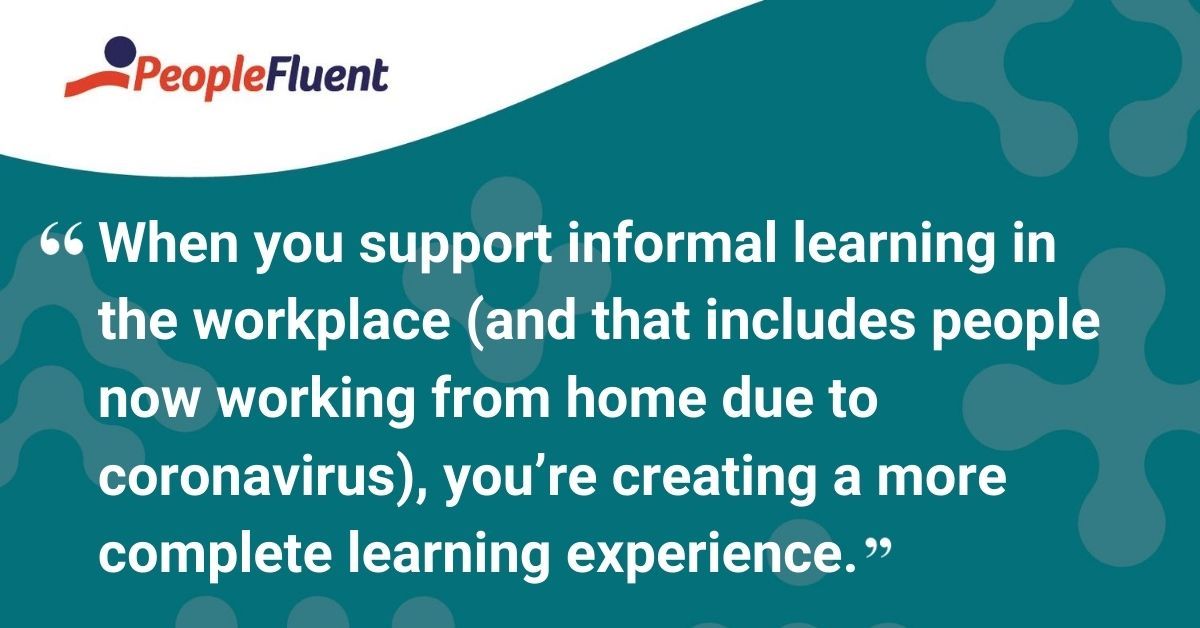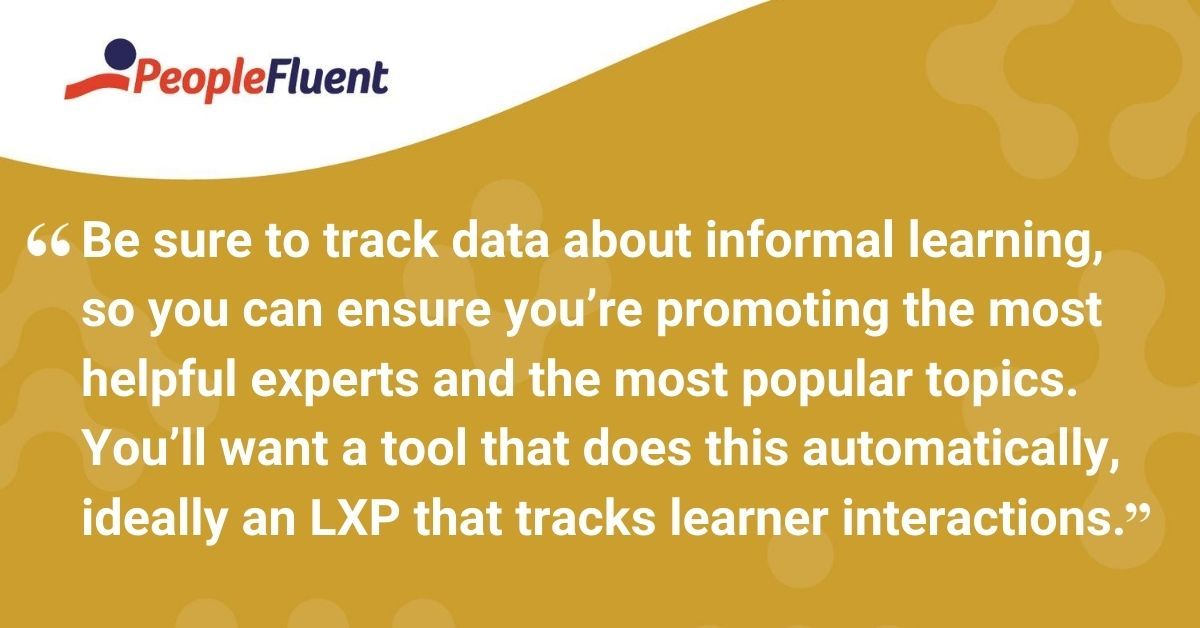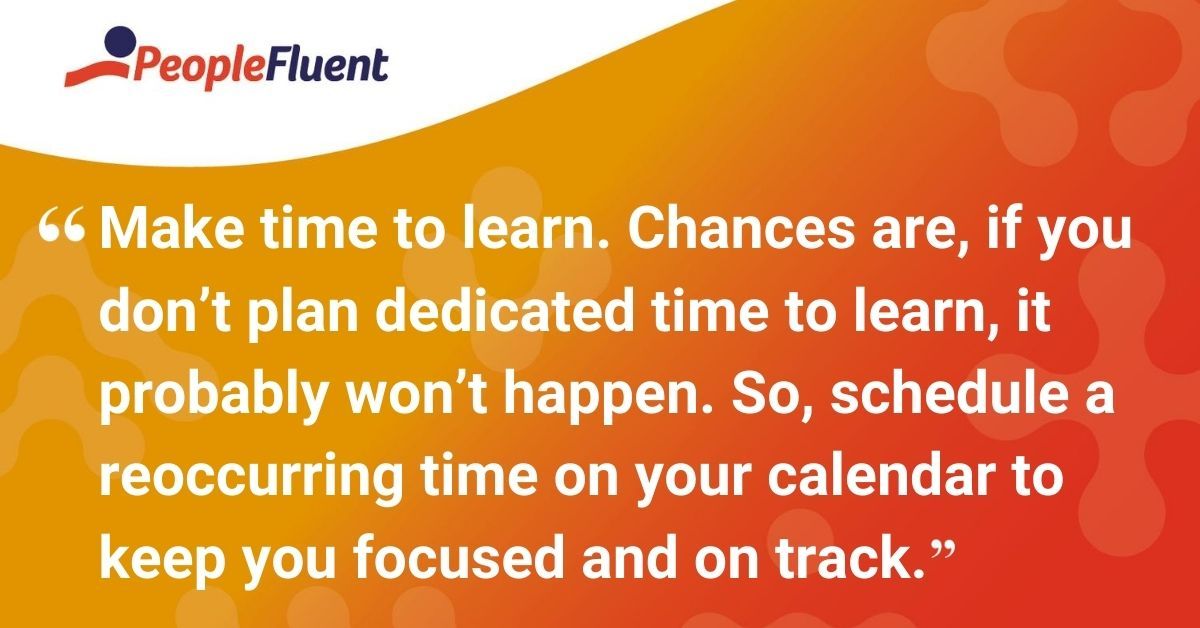Published: Jul 30, 2020Time to read: 4mins Category: Learning
3 Ways to Support Informal Learning (Even During Lockdown)
Most of what we learn isn’t through instructor-led training or courses delivered via a learning management system (LMS). Rather, we gain knowledge through a variety of informal means and methods—such as searching the web, asking a co-worker for help, or watching online tutorials. And, because these informal learning experiences are already happening in your organization, it’s important for L&D professionals to know how to recognize and foster them.
When you support informal learning in the workplace (and that includes people now working from home due to coronavirus), you’re creating a more complete learning experience. Getting started may be easier than you realize—especially when you consider these recommendations for distributed learning from our sister company, Watershed.

More from the blog: ‘Permanent Remote Working? How COVID-19 Is Reshaping the L&D Landscape’
1) Identify And Promote Experts
When you map out social learning in your organization, you’ll find certain people are regularly credited as sources of learning on particular topics. Whether these people are subject matter experts or just great at explaining certain areas, they’re valuable sources when it comes to informal training in your organization.
Often, people will find these internal experts on their own. So, make sure these experts are publicly known within your organization so everyone can benefit from their knowledge and expertise. Furthermore, this helps prevent workplace learners from wasting time and resources looking for information when they could have simply reached out to an internal expert.
Publishing areas of expertise (e.g. on an intranet or staff directory), makes finding the right people easier and faster. Or collate useful resources to give to new hires during their onboarding process.
Be sure to track data about informal learning, so you can ensure you’re promoting the most helpful experts and the most popular topics. You’ll want a tool that does this automatically, ideally a learning experience platform that tracks learner interactions.

Recommended reading: ‘Hollywood Hacks: 4 Ideas for Affordable, Professional-Quality Video Learning Content’
2) Enhance Online Community Management
When it comes to online learning, use this captured data to improve the overall structure of your social learning platforms. For example, you discover two groups are learning about the same or similar topics. Bringing those groups together could benefit everyone. Or, your data might tell you people learn best in smaller groups, which could then influence your choice of platform tools and setup.
3) Offer Formal Learning to Complement Informal Learning
After you identify how people are learning on the job, provide tailored support materials and formal learning resources such as eLearning to complement informal learning experiences. Learners will not only be more likely to pay attention to these materials, but also better equipped to absorb and comprehend information.
You might also like: ‘3 Challenges Posed by Creator-Centric Learning Needs and How to Rise to Them’
Help Learners Support Their Own Informal Learning
Supporting informal learning isn’t limited to the L&D team. A recent article about learning in the flow of work suggests that individuals can support their own informal learning by taking several simple steps. These include:
- Finding opportunities to learn from your peers by starting conversations and asking questions.
- Making time to learn. Chances are, if you don’t plan dedicated time to learn, it probably won’t happen. So, schedule a reoccurring time on your calendar to keep you focused and on track.
- Creating a list of topics and resources that pique your interest, so you can incorporate them into your learning routine. Tip: Try using note-taking apps (such as Evernote) to bookmark websites, clip articles, and manage your list.

Handpicked for you: ‘4 Tips for Organizations Using Technology to Train Staff Now Working From Home’
Learning Happens Everywhere
Remember, people are always learning across your organization, so it’s critical to take action that supports and reinforces these types of informal learning experiences. While many organizations are now embracing remote and home working practices, the impact of COVID-19 doesn’t have to mean the end of informal learning.
Your employees are probably getting together virtually to talk, share, and connect—more so than before the pandemic. And it wasn’t that long ago that we were flooded with ideas for things to learn and do during lockdown. While many people are now citing Zoom fatigue and with the novelty of video catch-ups beginning to wane, L&D professionals should be looking at ways to embrace our new way of working and embed learning opportunities. With the right tools and processes, you can support your learners’ ongoing thirst for information and knowledge-sharing.
Editor’s note: This article was originally published on our sister company, Gomo Learning’s blog and has been updated.
Want to support informal learning opportunities for your workforce?
A learning experience platform (LXP) may be just what you need. Built on video with support for eLearning, PDFs, and presentations, LXPs support learner-centric content creation, sharing, and consumption.